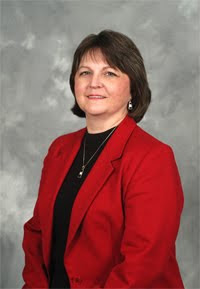
On today's op-ed page, Michael Weiss reports there's apparently no free speech for Amnesty International employees, at least not when criticizing Taliban, in the case of Gita Saghal:
Enter Ms. Sahgal, a longtime Amnesty employee who believed that her organization's support for Mr. Begg betrayed its core principles. She went public with her concerns in a Feb. 7 interview with London's Sunday Times in which she called the collaboration "a gross error of judgment" that posed a serious threat to human rights and to Amnesty's reputation. Amnesty suspended Ms. Sahgal from her job, claiming it didn't want her opinion of Mr. Begg to be confused with its own.
Amnesty continues to defend its affiliation with Mr. Begg and Cageprisoners. Last week, on a Canadian radio program, Amnesty's interim Secretary General Claudio Cordone described Mr. Begg's politics as benign, saying there was so far no evidence to suggest that the organization should sever ties with him.
This is nonsense, says Ms. Sahgal via telephone in her home in London. "Amnesty has messaged him as a human-rights advocate . . . He was in Taliban Afghanistan. He was not a charity worker."
Especially galling for Ms. Sahgal is the fact that she only accepted her job after insisting to Widney Brown, senior director of International Law and Policy at Amnesty, that she be allowed to address the Begg alliance.
"I told her, 'If you don't give me the power to clean up this Begg situation, I won't take on the gender affairs assignment. Widney encouraged me to write a memo on it and even came past my office late one night while I was writing to discuss it. There was no internal resistance against this. So I was promoted with full support. Then, when the Sunday Times story broke, everything I uncovered was deemed 'innuendo.'"
For Ms. Sahgal, her case is not simply a minor lapse in judgment. She thinks the problem is systemic. "This is a very peculiarly ideological approach to human rights, which misses the point."
Novelist Salman Rushdie had harsher words. In a public statement, he said that Amnesty had "done its reputation incalculable damage" by allying with Mr. Begg. "It looks very much as if Amnesty's leadership is suffering from a kind of moral bankruptcy, and has lost the ability to distinguish right from wrong."





